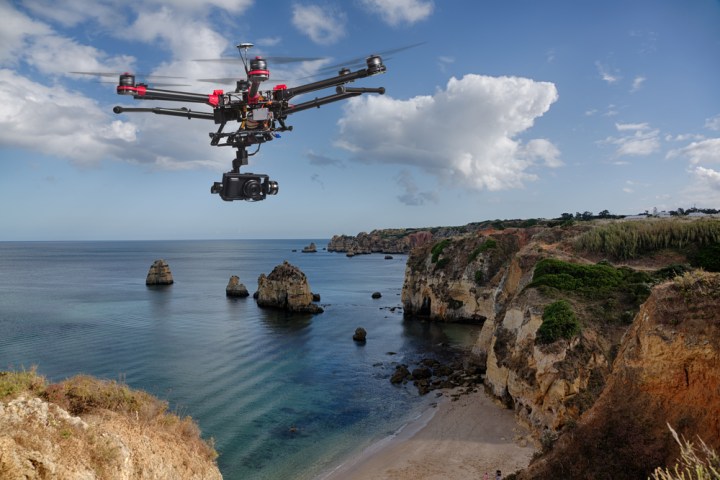
The press release cites a massive increase in “unsafe” drone operations (i.e. interfering with passenger planes, causing a ruckus at sporting events, and getting in the way of wildfire relief) as the main reason for the introduction of such a registry. According to Vice News, the FAA has reported more than 650 unauthorized drone sightings so far this year (as of August 9), opposed to just 238 during 2014. The Department of Transportation even notes that pilot sightings of drones doubled from 2014 to 2015, a figure which is only expected to continue to rise.
“Registering unmanned aircraft will help build a culture of accountability and responsibility, especially with new users who have no experience operating in the U.S. aviation system,” Foxx said during the announcement. “It will help protect public safety in the air and on the ground.”
While federal drone registration remains the crux of Foxx and Huerta’s announcement, the press release goes into more depth, detailing the creation of a task force designed to figure out a viable registration process. There are still a lot of kinks to work out before any concrete rules are put in place, however. For instance, does literally every purchased drone require the same filing process, or should the law be strictly limited to larger unmanned aircrafts? To get this answer, the duo plan to hire 25 to 30 representatives from various aircraft industries and the U.S. government, as well as potential stakeholders, to create the task force.
The mandatory registration process could begin by as early as mid-December
“ALPA (Air Line Pilots Association, Int’l) fully supports Secretary Foxx’s decision to create a task force that will recommend procedures and policy for creating a national registration database for all UAS,” says ALPA President Capt. Tim Canoll. “We look forward to engaging in discussions with this task force in developing the procedures necessary to ensure we maintain the highest levels of safety of our aviation system.”
In addition to determining which kinds of drones require registration, Foxx says the task force may implement tighter guidelines on safety, while also devising a way to make the registration process easy for commercial operators. Once the task force assembles, it’s expected the group will submit all its recommendations by November 20. After analyzing the proposal and deciding which laws are best, the mandatory registration process could begin by as early as mid-December. In the interim, the FAA says it still plans on offering outreach and drone education via its “No Drone Zone” and “Know Before You Fly” initiatives.
With drone popularity growing at such a feverish pace, it was only a matter of time before the U.S. government developed a solid framework for the legislation of drones and their operators. No matter what the outcome is, it seems that Foxx and Huerta’s proposal will no doubt be watershed moment for the future of unmanned aircraft.
Editors' Recommendations
- FAA gives UPS’ drone delivery efforts a big boost
- Korean Air first carrier to use drone swarms for aircraft inspection
- Drone-delivery specialist Wing lifts lid on its unique aircraft
- FAA authorizes autonomous drone flight without an operator nearby
- New drone rules could be troublesome for some owners



